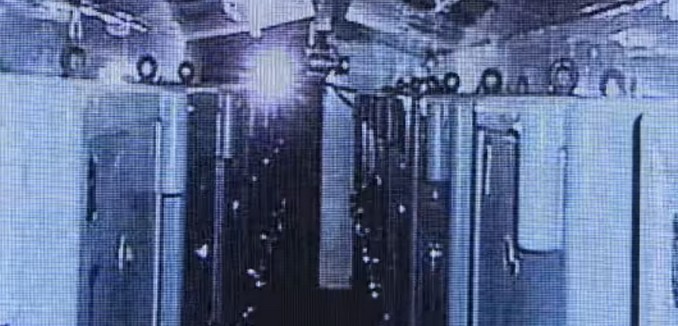After months of review, researchers concluded that the Iranian nuclear archive seized by Israel last year is “rich in new information” about the Islamic Republic’s nuclear aspirations and raises doubts about its commitment not to pursue nuclear weapons. The results of the study were published in a paper Monday.
The researchers — David Albright, a former weapons inspector and president of the Institute for Science and International Security; Olli Heinonen, former deputy director general of the International Atomic Energy Agency (IAEA) and a senior advisor to the Foundation for Defense of Democracies; and Andrea Stricker, a senior policy analyst at the institute — noted that by maintaining such a comprehensive archive of its nuclear weapons activity, Iran likely violated its “pledge under the JCPOA that under no circumstances will it ever seek nuclear weapons.”
The 2015 nuclear deal between Iran and world powers is known as the Joint Comprehensive Plan of Action (JCPOA).
The paper reviews what was reported about the archive in six previous papers. Iran had an active nuclear weapons program, called Project Amad, until 2003, when Iran chose to disguise the activity and scale it down.
The paper observed that the new information available in the archives “indicates that Iran might still be in breach of its nuclear nonproliferation undertakings.”
However, Albright, Heinonen, and Stricker write that the new information is “actionable,” allowing the world the possibility of “better carrying out inspections of Iran’s nuclear activities; challenging Iran’s prior incomplete and duplicitous statements about its nuclear weapons programs; more adequately understanding the threat Iran’s nuclear programs pose today and in the future; and better designing policies to address this issue.”
They also note that the archive shows that the American 2007 National Intelligence Estimate “underestimated the extent of Iran’s post-2003 nuclear weapons work” and that Iran is a lot closer to developing a deliverable nuclear weapon than previously thought.
In addition, the paper points out that many of the major figures in Project Amad, including President Hassan Rouhani, current National Security Advisor Ali Shamkhani, and Islamic Revolutionary Guard Corps (IRGC) Aerospace Force Commander Amir Ali Hajizadeh, remain influential in government and in positions allowing them “oversight of activities critical to maintaining a capability to make and deliver nuclear weapons.”
Since the deal was implemented more than three years ago, Albright, Heinonen, and Stricker write, the International Atomic Energy Agency (IAEA), which was charged with overseeing Iran’s compliance, has not been able to answer the question as to whether Iran still continues to pursue nuclear weapon research.
In other words, the IAEA “has not yet been able to certify that Iran’s nuclear program is truly peaceful.”
The paper also observed that the archive contains “deception folders” to ensure that Iran was consistent in the false or misleading information it provided to the IAEA from one inspection to the next.
The archive, according to the paper, documents the existence of equipment essential to the development of nuclear weapons that Iran has not reported to the IAEA, raising questions about how it is now being used.
“It is difficult to see how storing and curating an extensive nuclear weapons archive focused on developing and building missile-deliverable nuclear weapons is consistent with Iran’s pledge under the JCPOA that under no circumstances will it ever seek nuclear weapons,” the paper asserts. Later it adds, “Overall, the new information raises fundamental doubts about whether Iran is complying with its comprehensive safeguards agreement, the associated Additional Protocol, the JCPOA, and even the Nuclear Non-Proliferation Treaty.”
Albright, Heinonen, and Stricker acknowledge the shortcomings in the inspections regime that the archives show but express hope that the IAEA use this information to ensure “that all nuclear material and activities have indeed been declared to the IAEA, and all non-peaceful activities have been terminated and relevant capabilities dismantled.”
Last week, it was reported that Alex Younger, the head of Britain’s MI6 intelligence service, visited Israel and met with Yossi Cohen, head of the Mossad, and other Israeli intelligence officials regarding Iran’s nuclear program. Israeli intelligence has recently assessed that Iran is “making preparations” to develop nuclear weapons without blatantly violating the 2015 deal.
[Photo: IsraeliPM / YouTube ]




